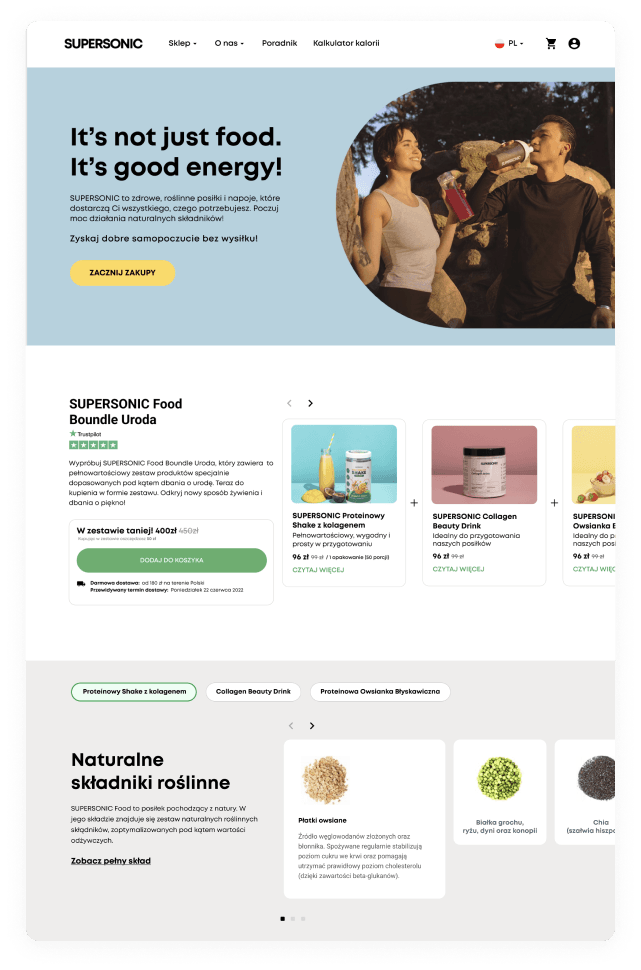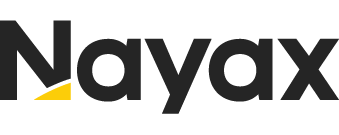

In-depth interview for business
In-depth interviews allow for a thorough understanding of customers’ needs and expectations, as well as gaining insights into the market and competition. The results of in-depth interviews can be used to develop business strategies, improve products and services, and gain a better understanding of customers and their needs.

What is in-depth interview?
In-depth interviews, also known as in-depth interviews, are a research method that involves conducting conversations with respondents to obtain detailed, in-depth information on a specific topic. In-depth interviews are time-consuming but allow for rich, detailed information that can be valuable for businesses. The results of these interviews can be used to better understand the market, identify customer needs, improve products and services, and develop business strategies.
Better understanding of customers
In-depth interviews allow for a deep understanding of customers’ needs, preferences, and expectations, enabling better customization of products and services to meet their needs.
Identification of hidden trends
Thanks to in-depth interviews, it is possible to hidden trends that can have a impact on business, but are not easily identifiable in traditional research methods.
Discovering new perspectives
In-depth interviews allow for the discovery of new perspectives and, which can lead innovative solutions and a better understanding of the market.
Improving products and services
Thanks to the detailed information obtained in in-depth interviews, it is possible to make improvements to products and services in order to better meet the needs and expectations of customers.
Building customer relationships
In-depth interviews provide an opportunity to establish direct contact with customers, which can contribute to building stronger relationships and connections with them.

Supersonic Food – Food of the Future. Health food store.

Our cooperation with SUPERSONIC Food began with store optimization, and after a few months it turned into full maintenance of the e-commerce website. Thanks to our cooperation with SUPERSONIC Food, we managed to achieve results that resulted in increased sales and improved website use (User Experience).
I recommend cooperation with Codeq to everyone looking for a dedicated e-commerce partner. Their holistic approach to e-commerce development, maintenance and security was crucial to the success of our online store.
Chris Kozak Founder @ SuperSonic FoodCharacteristics of in-depth interviews
In-depth interviews have several key characteristics that set them apart from other types of interviews. These characteristics include:
- Open-ended questions: In-depth interviews typically involve asking open-ended questions that allow participants to provide detailed and nuanced responses. These questions encourage participants to share their thoughts, opinions, and experiences freely, without being limited to predefined options or categories.
- Probing and follow-up questions: In-depth interviews often involve probing and follow-up questions to delve deeper into the participant’s responses. These questions seek clarification, additional details, or alternative perspectives to ensure a comprehensive understanding of the topic being discussed.
- Flexibility and adaptability: In-depth interviews are flexible and adaptable to the participant’s responses and the evolving conversation. The interviewer can adjust the questions and follow-up probes based on the participant’s answers, allowing for a more organic and exploratory discussion.
- Rich qualitative data: In-depth interviews generate rich qualitative data that captures the participant’s perspectives, experiences, and emotions. These interviews provide in-depth insights into the participant’s thoughts and motivations, offering a deeper understanding of the topic under investigation.
- Small sample size: In-depth interviews typically involve a relatively small sample size compared to quantitative research methods. This allows for a more detailed and focused examination of individual experiences and perspectives.
- Time-intensive: In-depth interviews require a significant investment of time, both in terms of conducting the interviews themselves and analyzing the collected data. The interviewer needs to allocate sufficient time to build rapport with the participant, ask probing questions, and carefully document the responses.
- Qualitative analysis: The data collected from in-depth interviews is typically analyzed using qualitative research methods. This involves identifying themes, patterns, and insights from the participants’ responses, often through techniques such as coding and thematic analysis.
Overall, in-depth interviews offer a comprehensive and nuanced understanding of a particular topic or research area by allowing participants to share their perspectives and experiences in detail. They provide rich qualitative data that can inform decision-making, theory development, or further research.
Benefits of in-depth interviews
In-depth interviews for business are a process of conducting detailed with key stakeholders to in-depth knowledge about a specific business area. The benefits of conducting such interviews are numerous.
- In-depth interviews allow for a better understanding of customer needs and expectations. This enables businesses to tailor their offerings and business strategies to better meet those needs, which can result in increased profits and customer satisfaction.
- These interviews provide information about the competition. By learning about their strengths, weaknesses, and strategies, businesses can better adapt their operations and compete in the market.
- In-depth interviews can help identify trends and new opportunities in the market. They provide insights into changing customer preferences, new technologies, and other factors that may impact the industry. This allows for faster responses and the utilization of these trends to increase competitiveness.
- Such interviews can contribute to building relationships with key stakeholders. By engaging in conversations and listening to their opinions, businesses can build trust and demonstrate that they value their needs and opinions. This can lead to long-term business relationships and customer loyalty.
- In-depth interviews can provide valuable information for making strategic decisions. Based on the gathered data, analysis and evaluation can be conducted, enabling more thoughtful and informed decision-making that can benefit the company.
In summary, in-depth interviews for business bring many benefits, such as a better understanding of customers, competition, and market trends, building relationships with key stakeholders, and providing information for strategic decision-making. Conducting such interviews can contribute to the success and growth of a company.
How to conduct in-depth interviews?
In-depth individual interview is a detailed conversation conducted with a specific participant in order to gain in-depth knowledge on particular topic. The process of such an interview may vary depending on the context and purpose of the conversation, but there are several general steps that can be applied.
- Planning: At the beginning, it is important to determine the purpose of the interview and specify the questions that will be asked. It is also important to establish a schedule and meeting place.
- Introduction: At the very beginning of the interview, it is worth introducing oneself and explaining the purpose of the conversation. It is important to create an atmosphere of trust and comfort so that the participant feels at ease in providing answers.
- Open-ended questions: During the interview, it is important to ask open-ended questions that encourage the participant to elaborate on their answers. The questions should be precise and specifically related to the topic of the conversation.
- Active listening: During the interview, active listening is important, which means focusing on the participant’s words and emotions. Interruptions should be avoided and time should be given for the participant to fully express their thoughts.
- Request for clarification: If the participant’s answer is unclear or requires additional information, you can ask for clarification or a more detailed response.
- Ensuring confidentiality: In interviews where sensitive topics are discussed, it is important to assure the participant that the conversation is confidential and will not be shared with third parties.
- Summary: At the end of the interview, it is worth summarizing the key points and thanking the participant for their participation. You can also ask if there are any additional information they would like to share.
The process of an in-depth individual interview can be tailored to the needs and preferences of the participants. It is important to create an atmosphere of trust and openness so that the participant feels comfortable in providing answers.
Trust our workflow
Great information architecture and comfortable navigation help users achieve their goals on your website. Build a website with us.
Discovery
During the discovery phase, we collect all the necessary data that allows us to make informed decisions in the following stages of the project. It helps us co-create a clear roadmap and product backlog (not sure what you mean by backlog here, maybe replace this with strategy).
Design
The UX and design phase consist of visualizing a previously developed concept. We recreate the information architecture and actualise your business goals through UX. Finally, the digital product comes to life with a specific visual style that aligns with your brand identity.
Development
Using the right tools and tech stack, everything from discovery and design is transformed into the language of technology. Every solution is complemented by extensive testing from a wide range of devices.
Support
The implementation of a digital product is only the beginning of the adventure. We offer support with maintenance and further development and are continuously present for our clients. Equipped with analytical data, we can create hypotheses and conduct A / B tests.
They trusted us
I recommend cooperation with Codeq to everyone looking for a dedicated e-commerce partner. Their holistic approach to e-commerce development, maintenance and security was crucial to the success of our online store.
In depth interview as research method
An in-depth interview is a research method used to gather detailed and comprehensive information from participants on a specific topic. It is a qualitative research technique that aims to explore participants’ thoughts, opinions, experiences, and perspectives in depth.
During an in-depth interview, a researcher conducts a one-on-one conversation with a participant, allowing for a more personal and intimate exchange of information. The interview is typically guided by a set of open-ended questions that encourage the participant to provide detailed and nuanced responses.
The purpose of an in-depth interview is to gain a deeper understanding of the participant’s thoughts, feelings, motivations, and experiences related to the research topic. It allows researchers to explore complex issues and uncover rich, contextualized data that may not be easily captured through other research methods.
In-depth interviews are often used in qualitative research studies, such as in social sciences, psychology, market research, and user experience research. They can provide valuable insights into individuals’ perspectives, attitudes, and behaviors, helping researchers to develop a more comprehensive understanding of the topic under investigation.
To illustrate the concept, let’s consider an example. Imagine a researcher is conducting a study on the experience of individuals who have recently started their own businesses. Through in-depth interviews, the researcher can ask open-ended questions about the challenges, motivations, and strategies involved in starting a business. The interviews may delve into topics such as the participants’ initial ideas, the obstacles they faced, their decision-making processes, and the impact of their entrepreneurial ventures on their personal lives. By conducting in-depth interviews, the researcher can gather detailed and nuanced information that provides a deeper understanding of the experiences and perspectives of these entrepreneurs.
In summary, an in-depth interview is a research method that involves conducting detailed and personalized conversations with participants to gather comprehensive information on a specific topic. It is a valuable qualitative research technique that allows researchers to explore complex issues and gain a deeper understanding of participants’ thoughts, experiences, and perspectives.
In-depth interview – services for business by Codeq
In-depth interviews are a valuable tool that can be used in various situations. Here are a few examples of when it is worth using this type of interviews:
- Market and competition research: If you are planning to introduce a new product or service to the market, in-depth interviews can help better understand customer needs and competition expectations. You can learn about customer preferences, the strengths of the competition, and how you can differentiate yourself in the market.
- Business strategy development: In-depth interviews can also be useful in developing a business strategy. You can conduct interviews with key stakeholders such as employees, customers, suppliers, or business partners to gain in-depth knowledge of their needs, opinions, and suggestions. This will help you tailor your actions and make better strategic decisions.
- Customer satisfaction research: If you want to assess the level of customer satisfaction with your products or services, in-depth interviews can provide valuable information. You can have conversations with selected customers to learn about their experiences, what they like, and what can be improved. This will allow you to better understand their needs and take actions to increase customer satisfaction.
- Trends and innovation research: In-depth interviews can also help identify trends and innovations in a particular industry. You can talk to experts, opinion leaders, or other industry-related individuals to learn about new technologies, changing customer preferences, or other factors that may impact the future of the industry.
- Employee research: In-depth interviews can also be useful in studying employee opinions and needs. You can have conversations with employees to learn about their expectations, the strengths and weaknesses of the organization, and how to improve the work environment and team effectiveness.
It is worth using in-depth interviews in situations where you need in-depth knowledge on a specific topic, want to better understand customer needs, competition, employees, or market trends. Conducting such interviews will allow you to obtain valuable information that can help make better decisions and achieve success in business.
Indepth interview focused on the project or company
An in-depth interview focused on the project or company is a type of interview where the main objective is to gather detailed information and insights about a specific project or the overall operations of a company. This type of interview is typically conducted with individuals who have a deep understanding of the project or are key stakeholders in the company.
During an in-depth interview, the interviewer asks targeted questions to gain a comprehensive understanding of various aspects related to the project or company. These questions may cover topics such as the project’s goals, strategies, challenges, achievements, timeline, budget, team structure, and any other relevant details. The interviewer may also inquire about the company’s mission, vision, values, organizational structure, culture, competitive landscape, and future plans.
The purpose of conducting an in-depth interview is to gather valuable insights, perspectives, and firsthand information that can be used for various purposes. This can include conducting research, making informed decisions, identifying areas for improvement, understanding customer needs, evaluating project or company performance, or generating ideas for innovation.
To illustrate, let’s consider an example. Suppose a market research firm wants to understand the factors contributing to the success of a particular product launched by a company. They would conduct in-depth interviews with the product development team, marketing team, and key executives to gather detailed information about the product’s features, target audience, marketing strategies, sales performance, and customer feedback. These interviews would provide the market research firm with a comprehensive understanding of the project and help them generate insights to support their research findings.
In summary, an in-depth interview focused on the project or company is a thorough and detailed conversation aimed at gathering comprehensive information and insights about a specific project or the overall operations of a company. It helps in gaining a deeper understanding of the subject matter and can be used for various purposes such as research, decision-making, and improvement.
Tools we use at work
Benefits of collaborating with Codeq
A 12 month warranty
The quality of work is not only empty promises. The warranty will give you assurance that our solution will be free from defects.
An experienced and well-coordinated project team
We employ the best WordPress and Shopify Developers in Poland with many years of commercial experience. We provide the highest quality of code and ongoing communication.
Efficient communication and project management
The refined and tested project management process and the continuous care of the Project Manager guarantee uninterrupted access to the status of our projects.
Technological polyglots
There are many specialists of various technologies on board our team. Thanks to them we are able to be your eyes and ears in the constantly changing world of technology.
Let’s discuss your idea!
Free consultation with an expert – maximum focus on your idea
An analysis of challenges and issues in the field of UX Design and Development
Recommendations for best practices in UX Design and Development
A comprehensive implementation plan from start to finish











